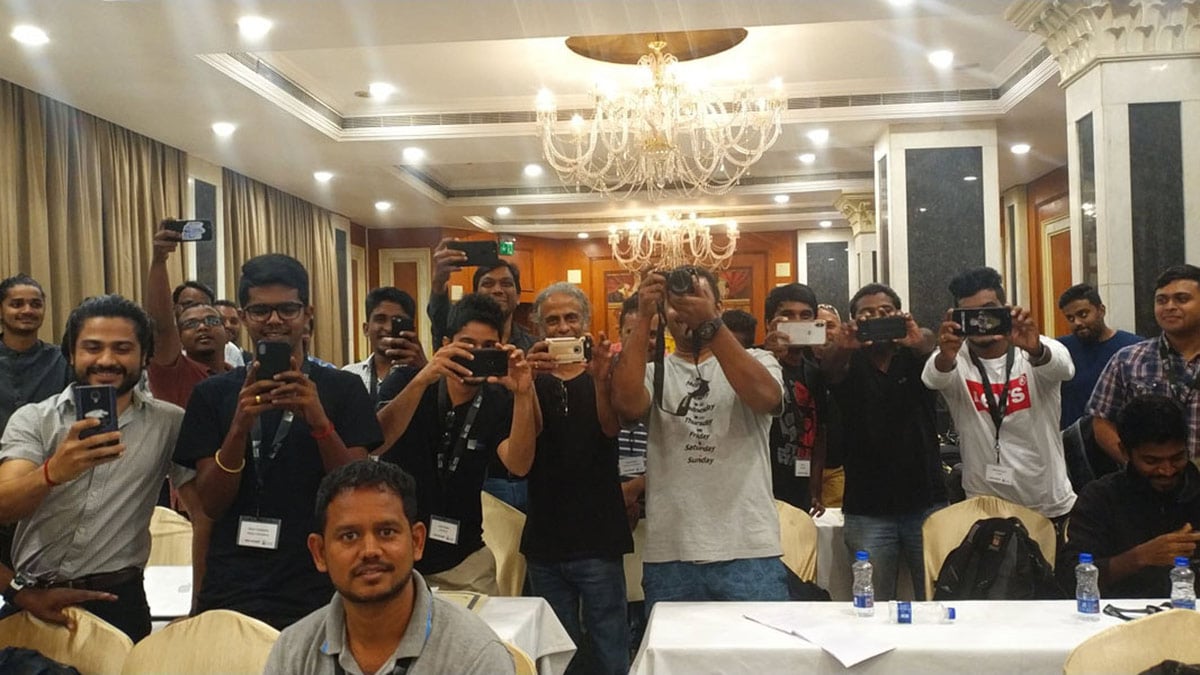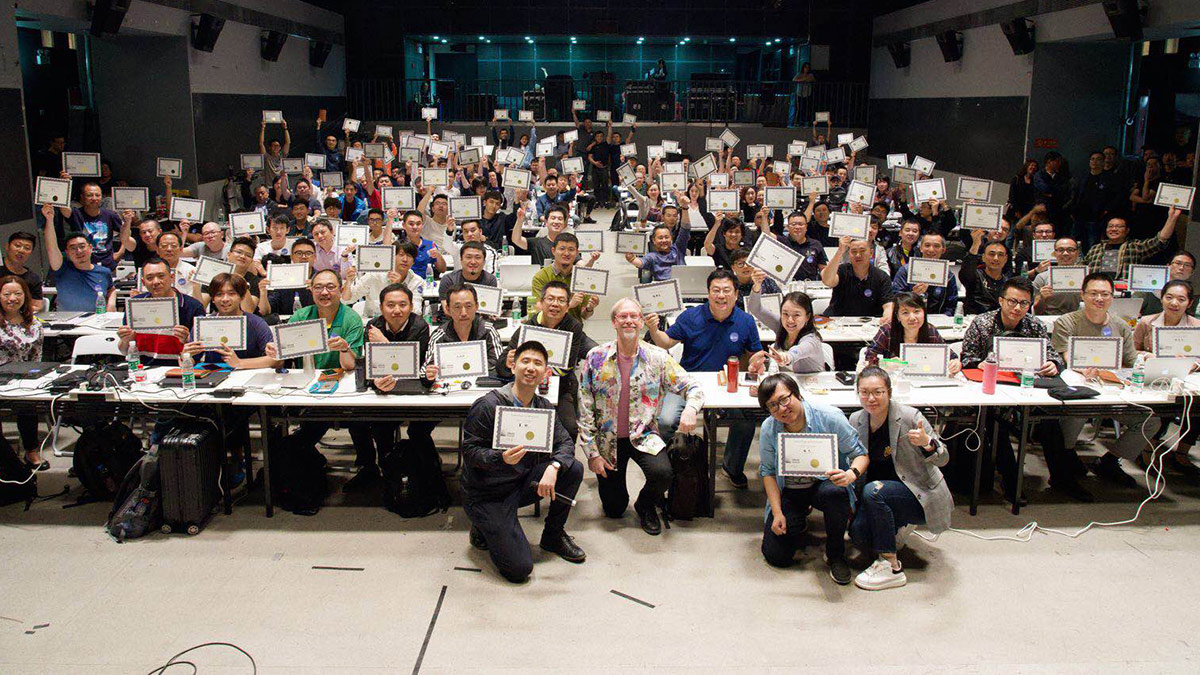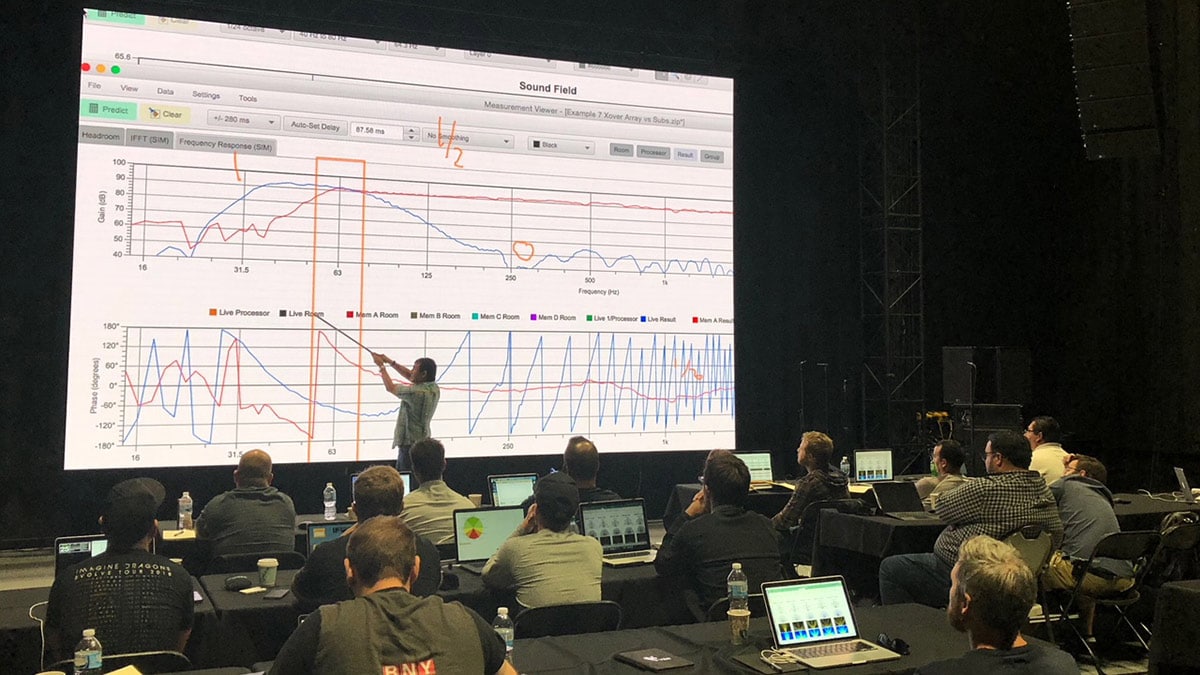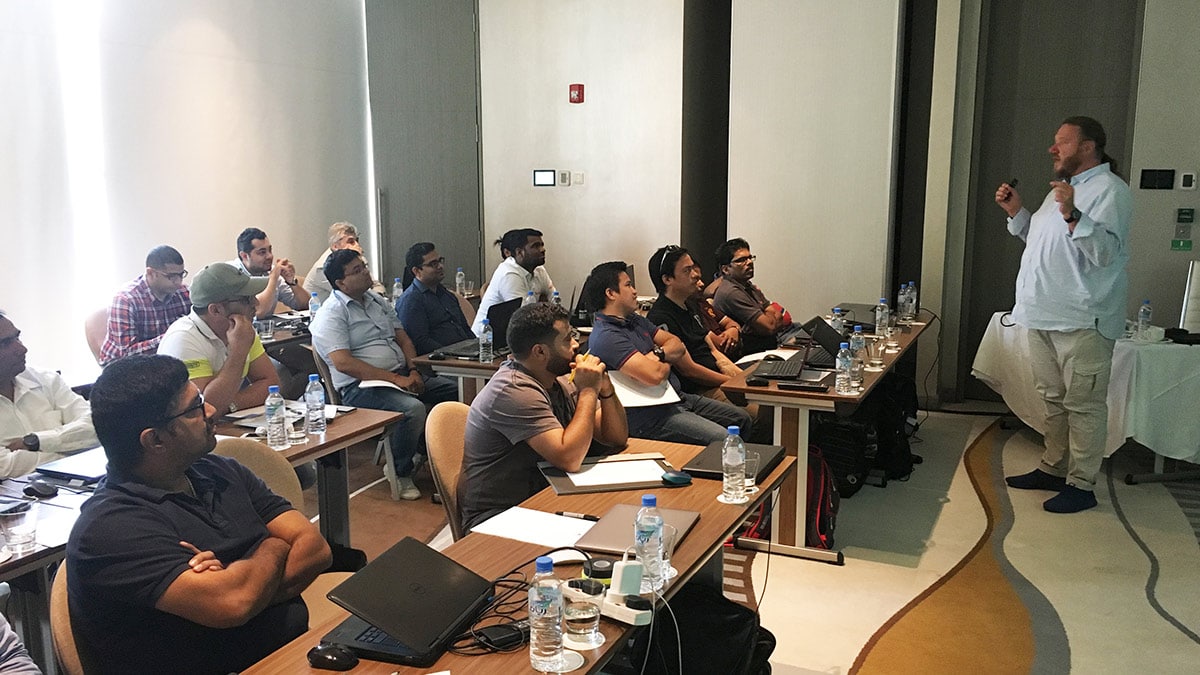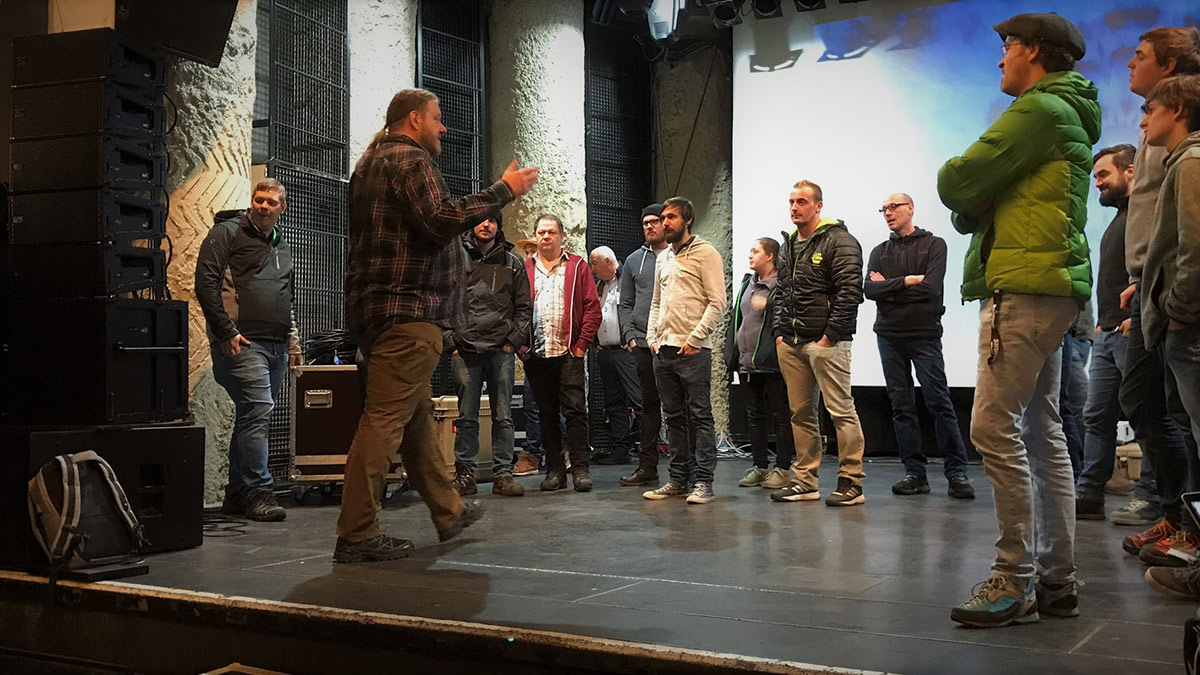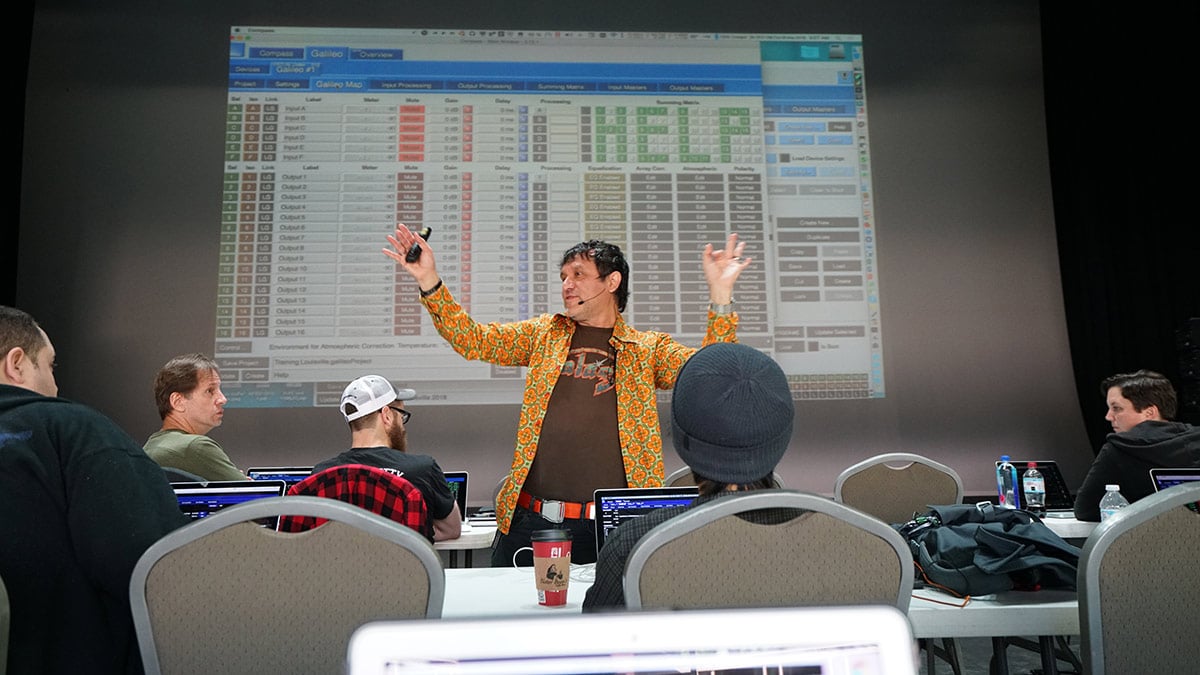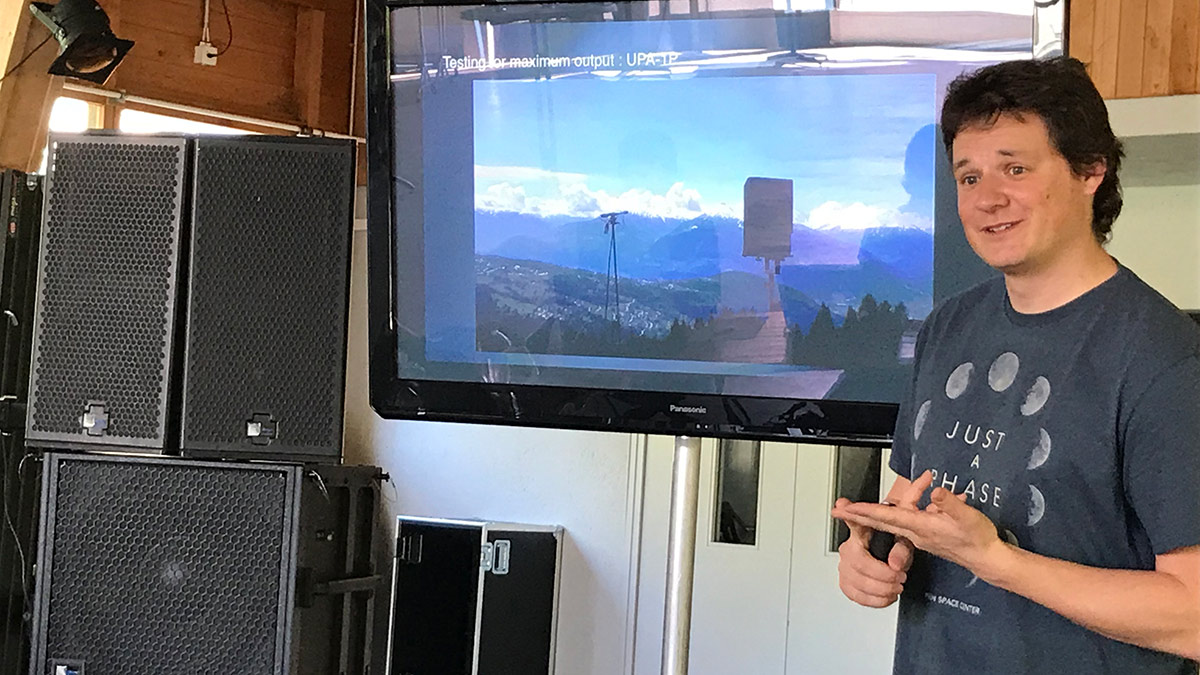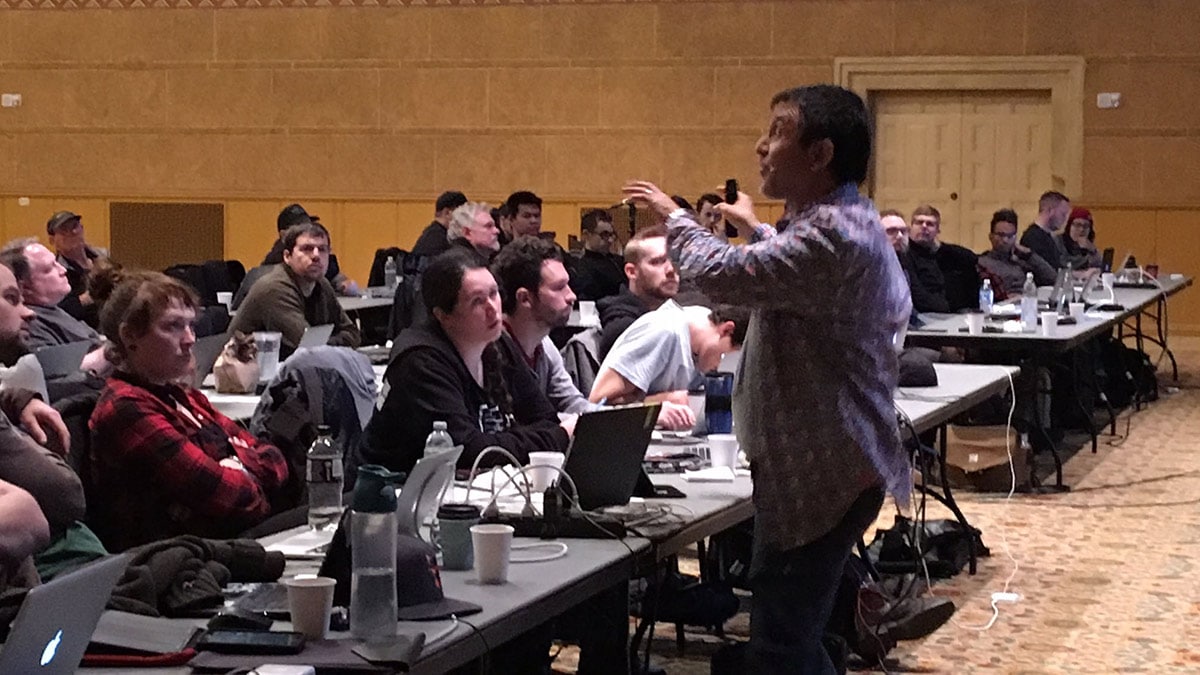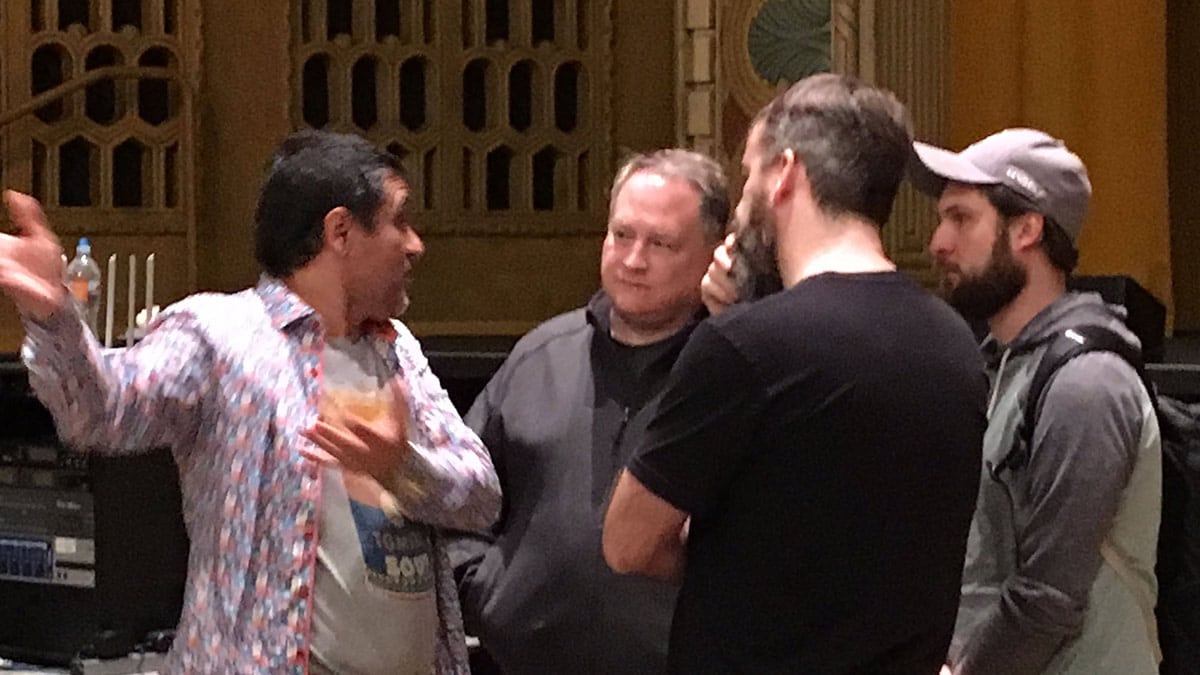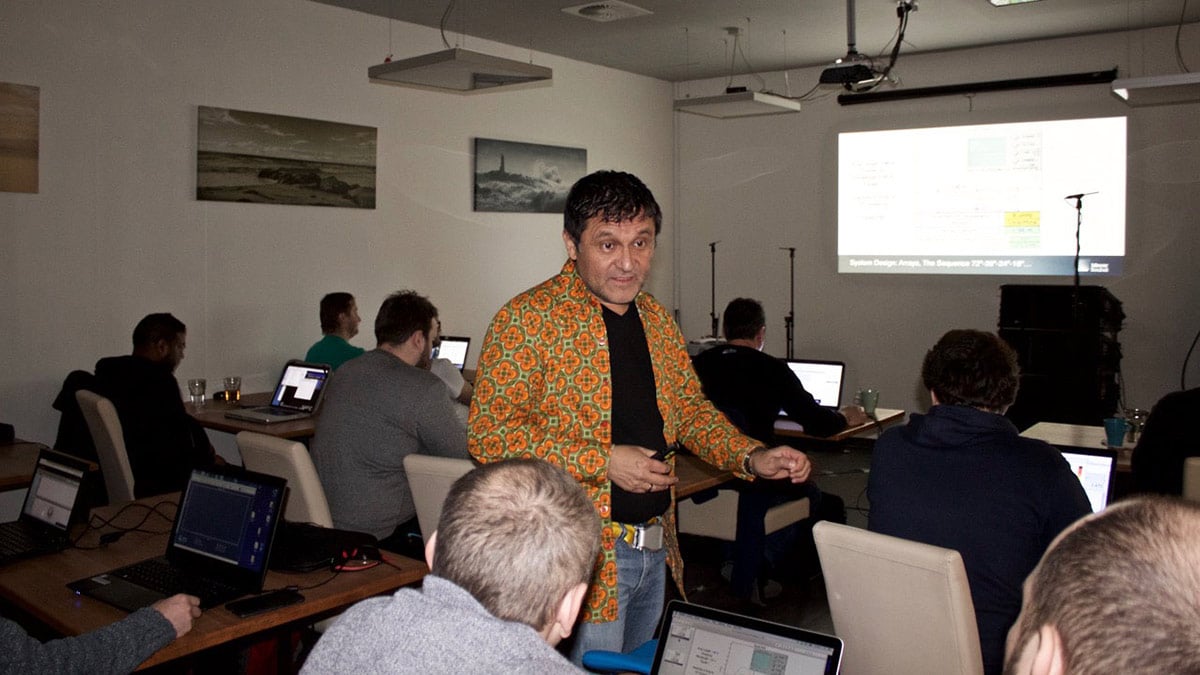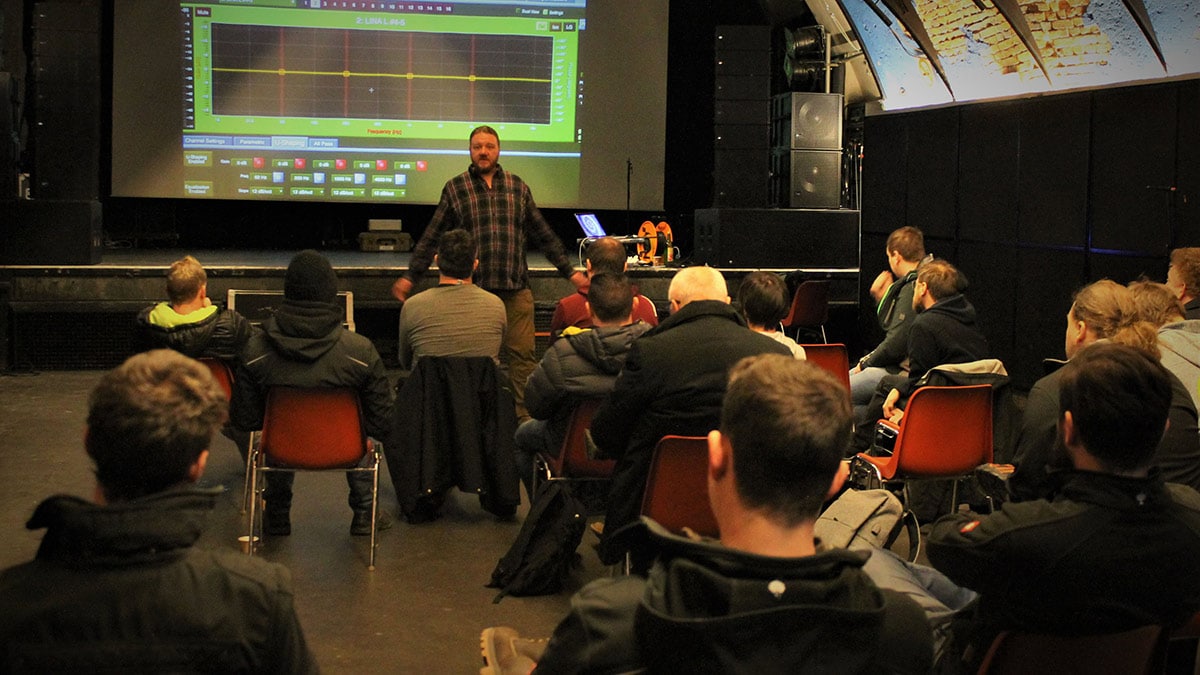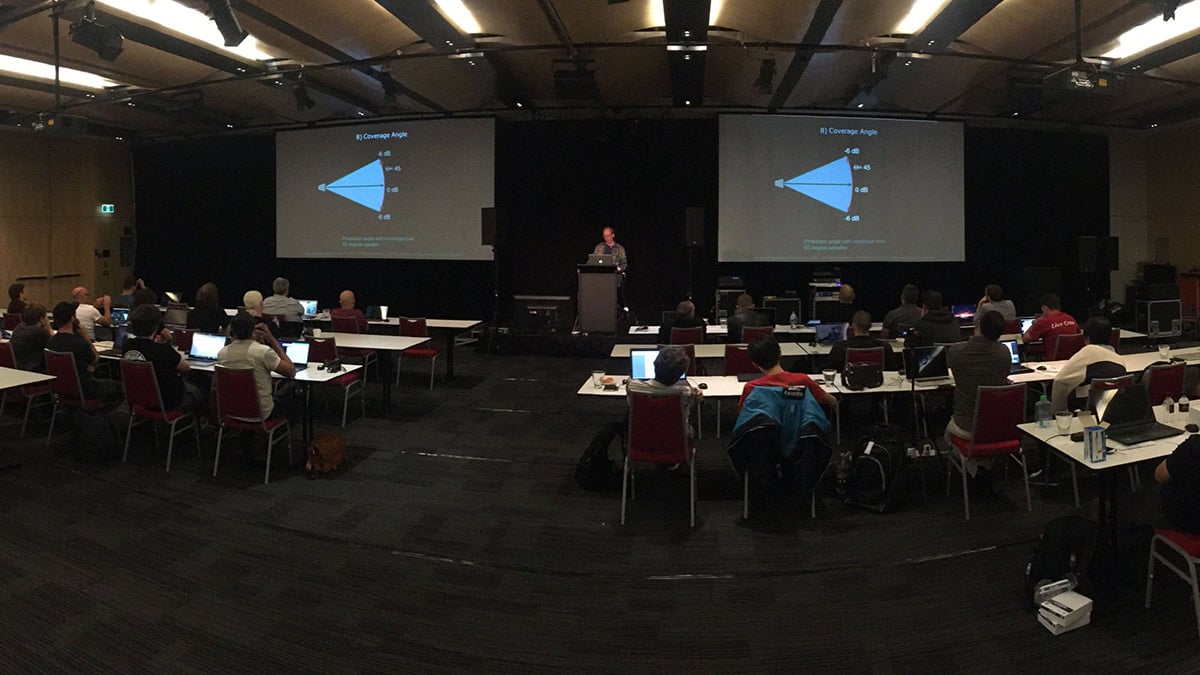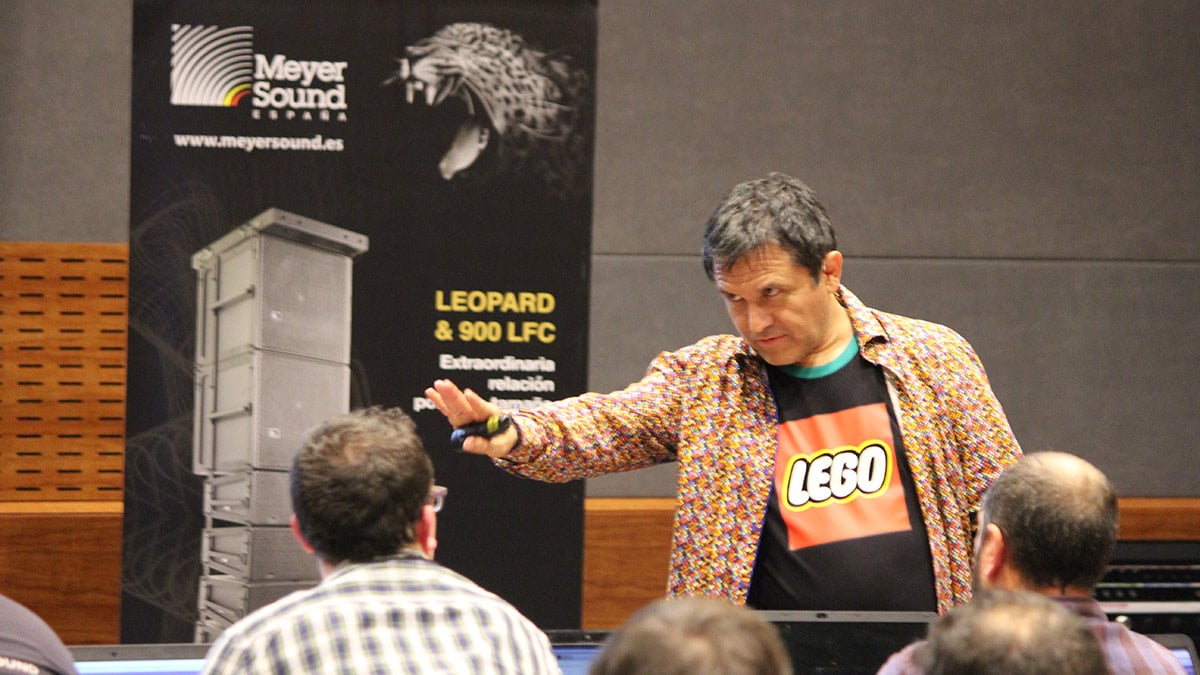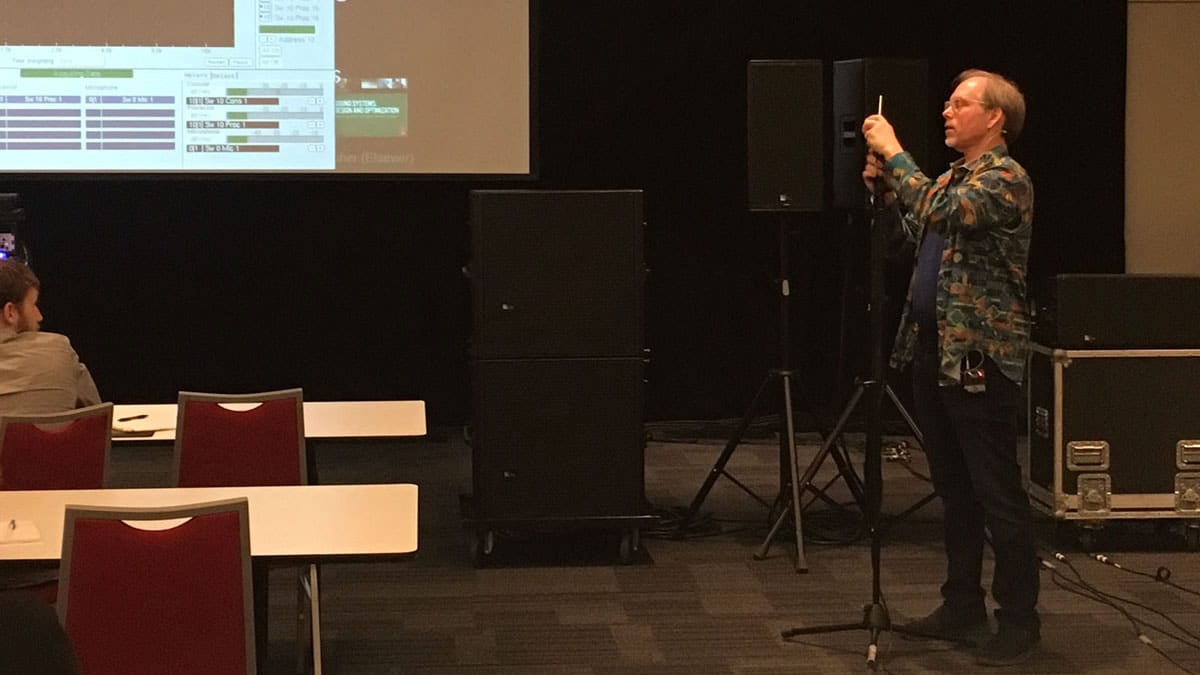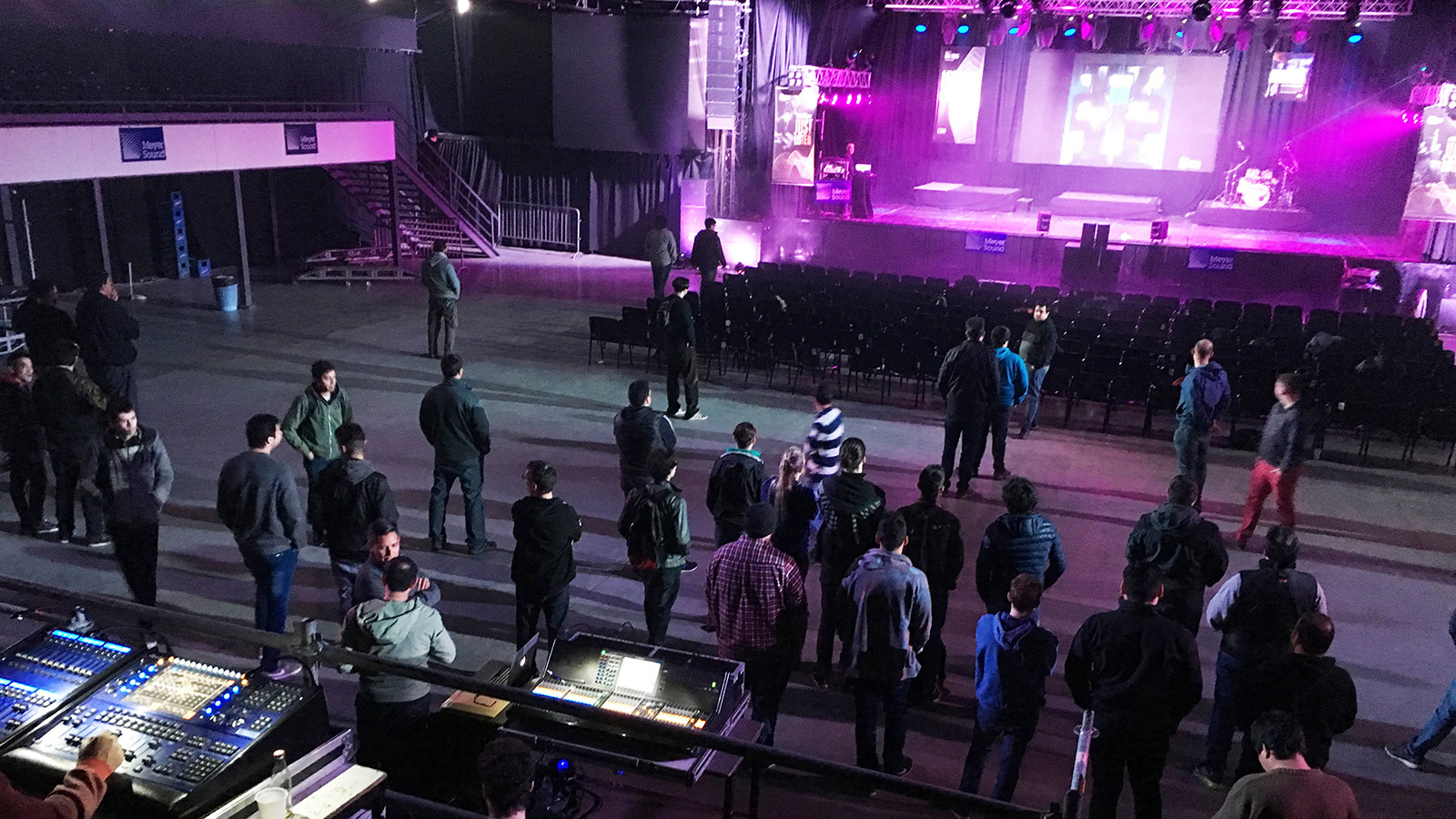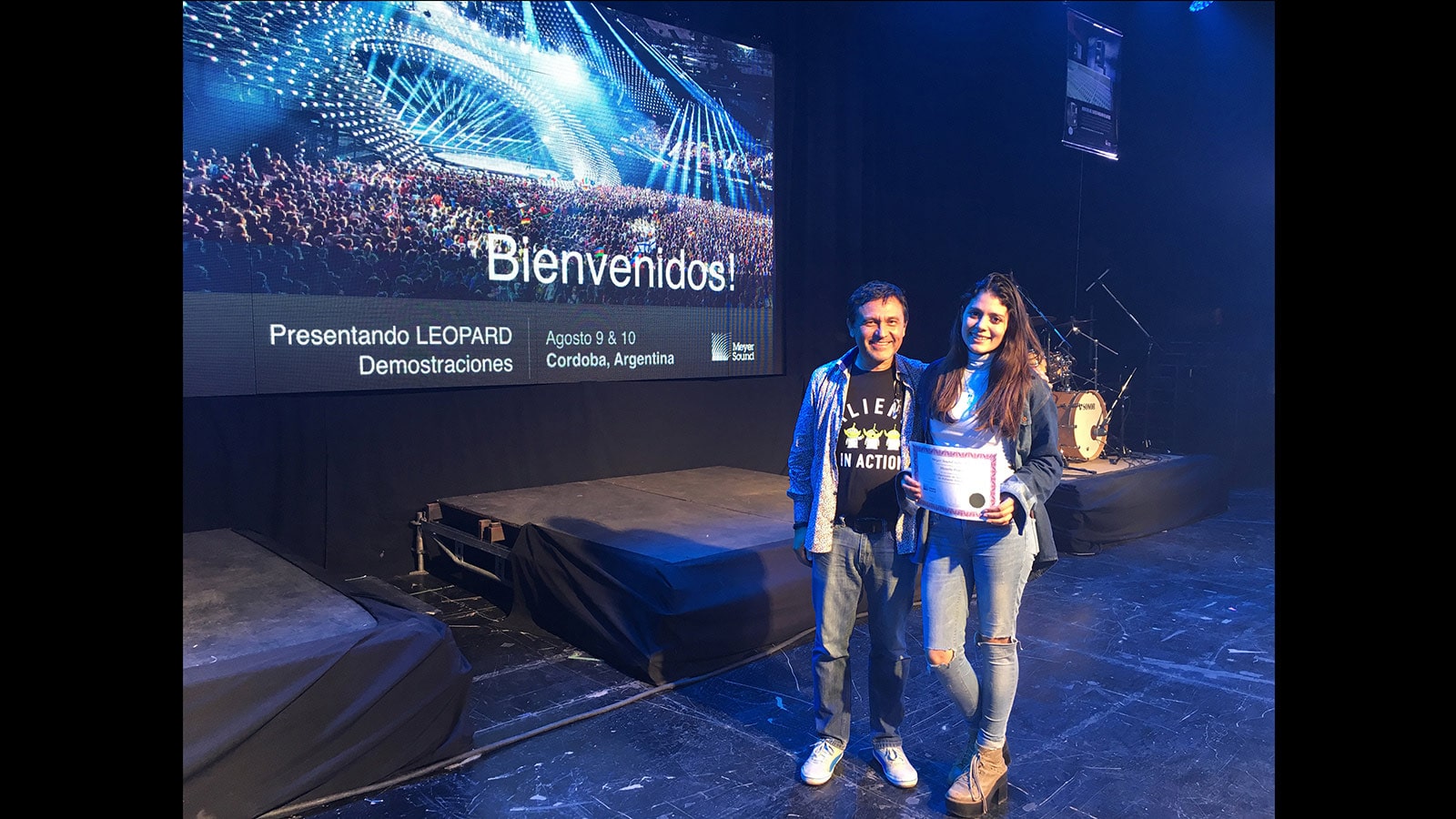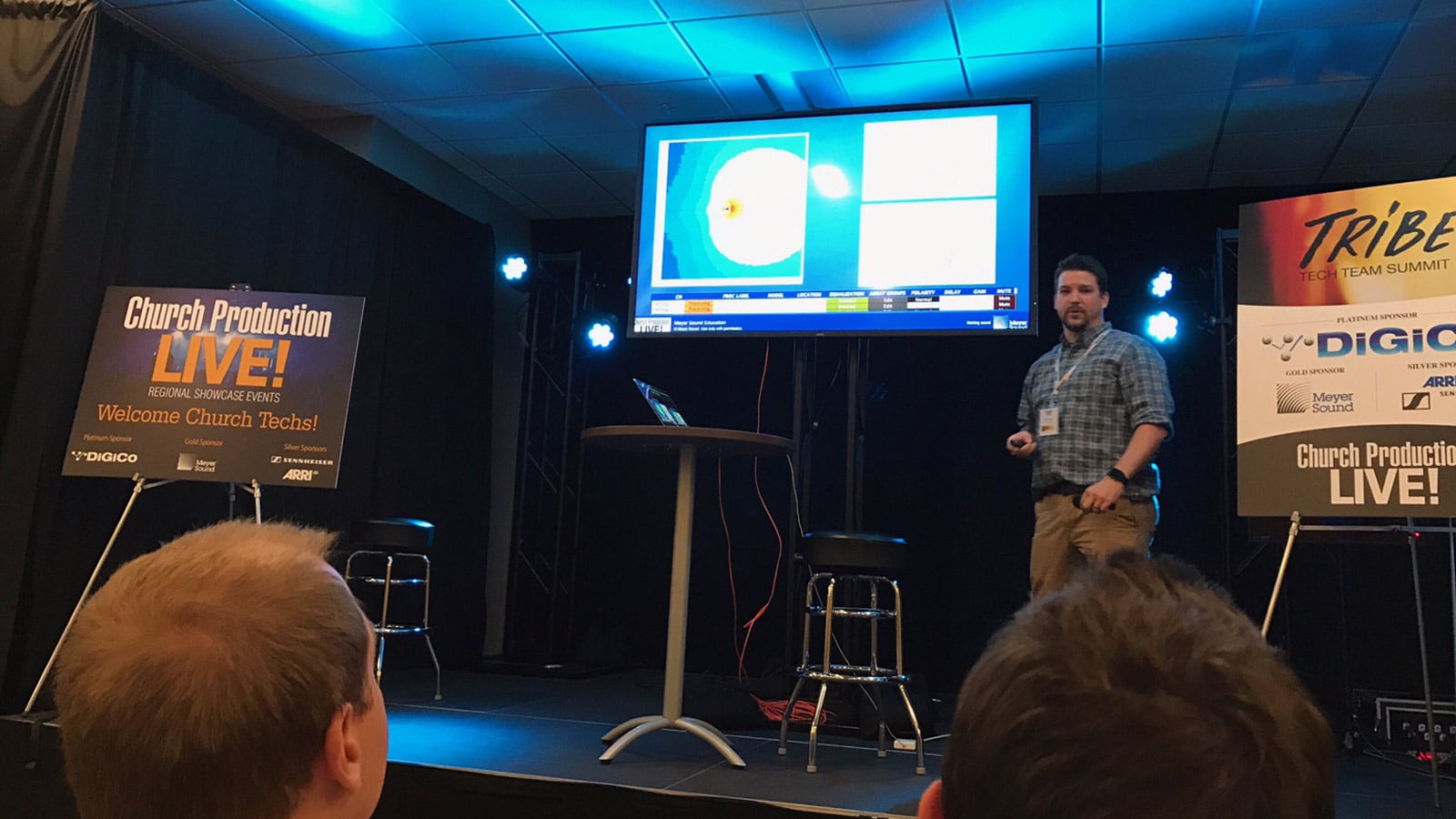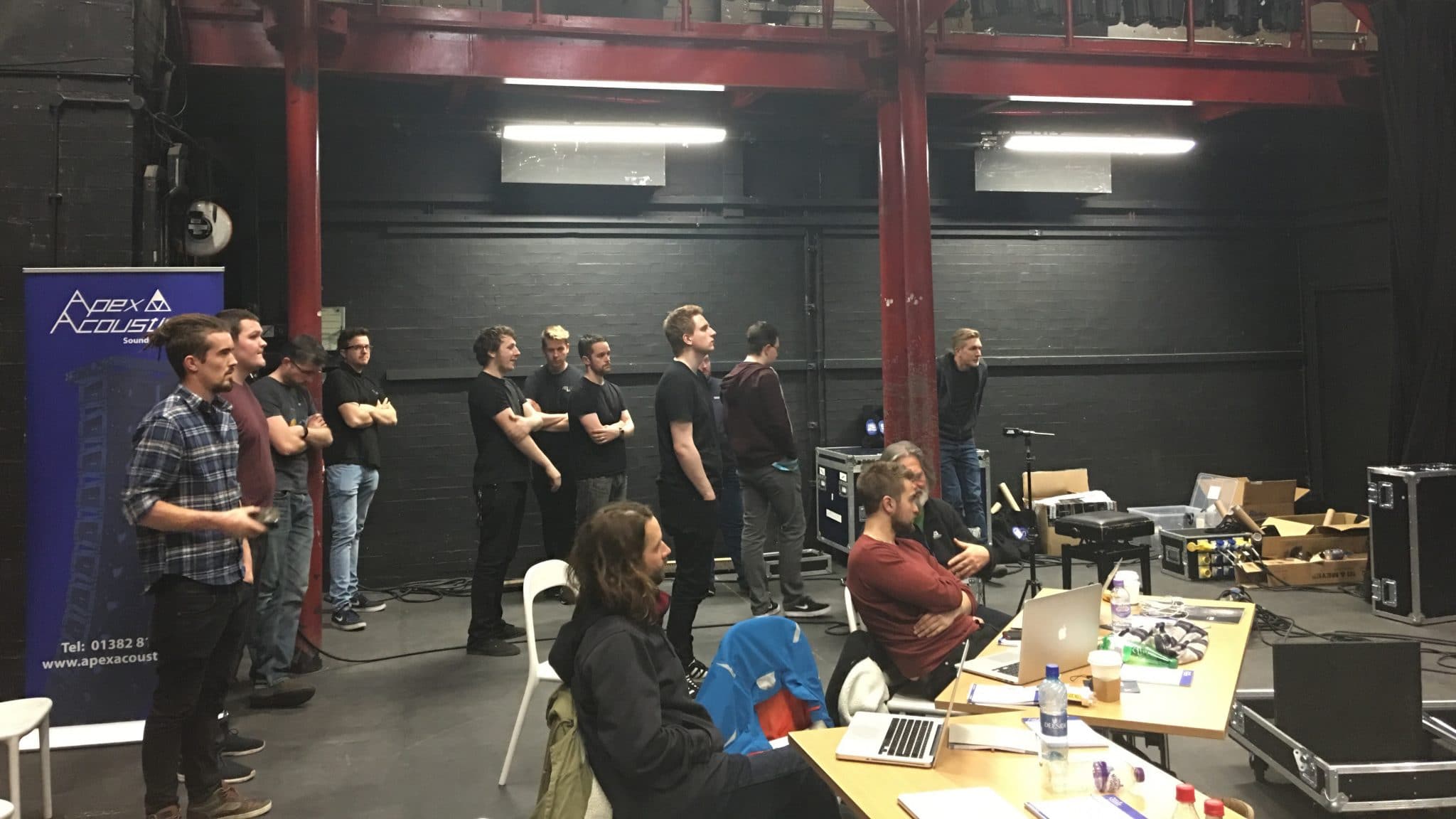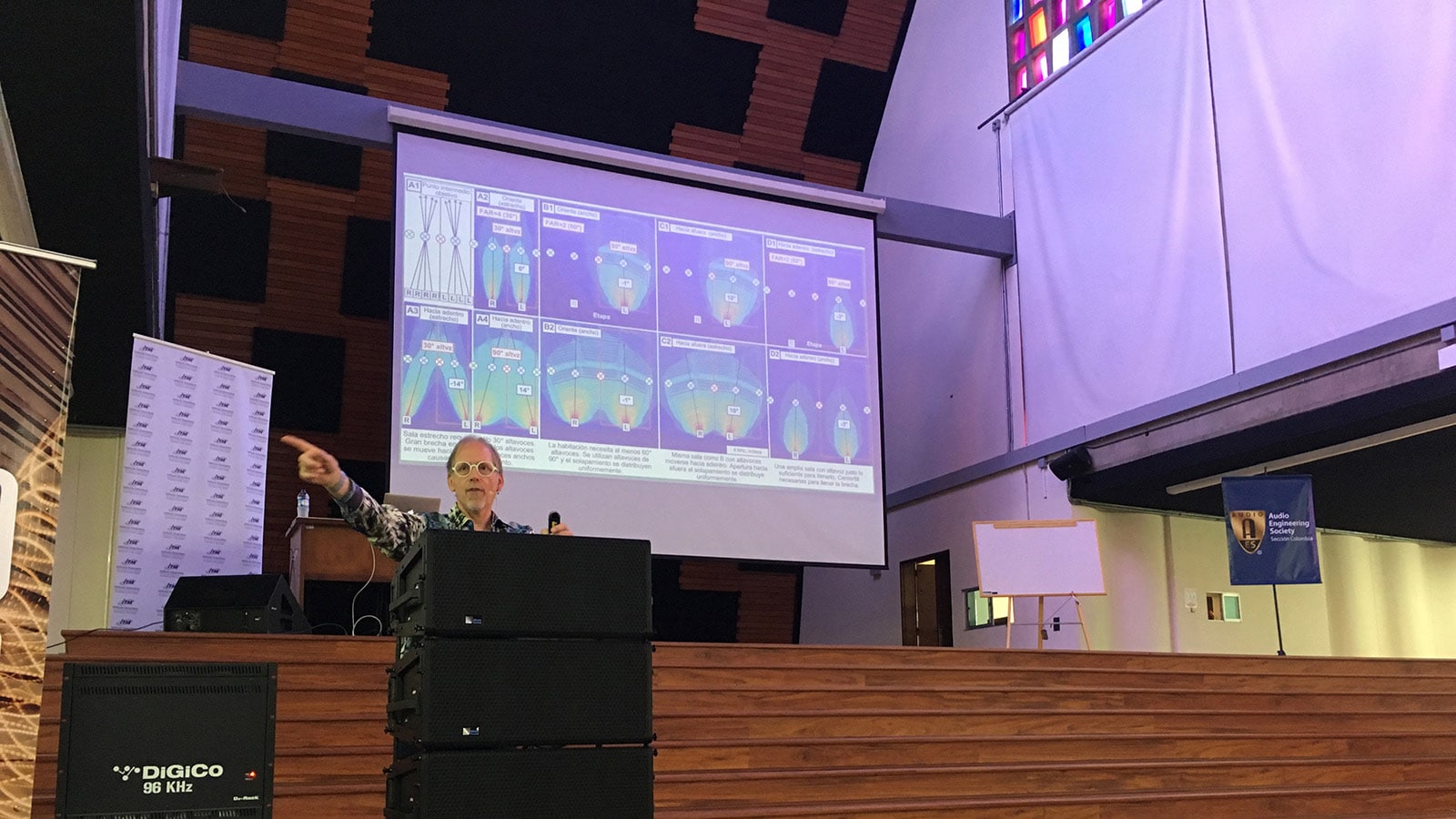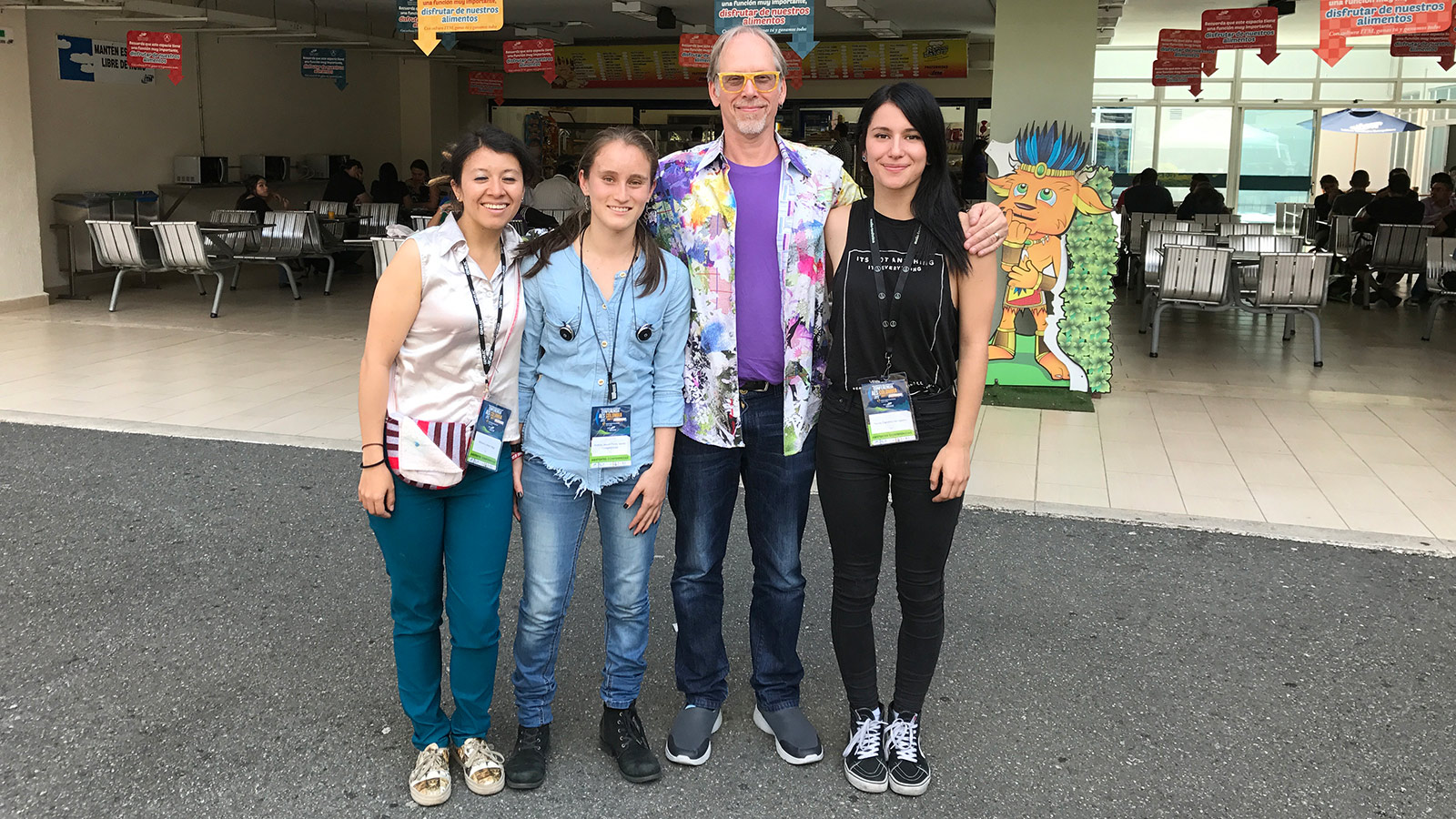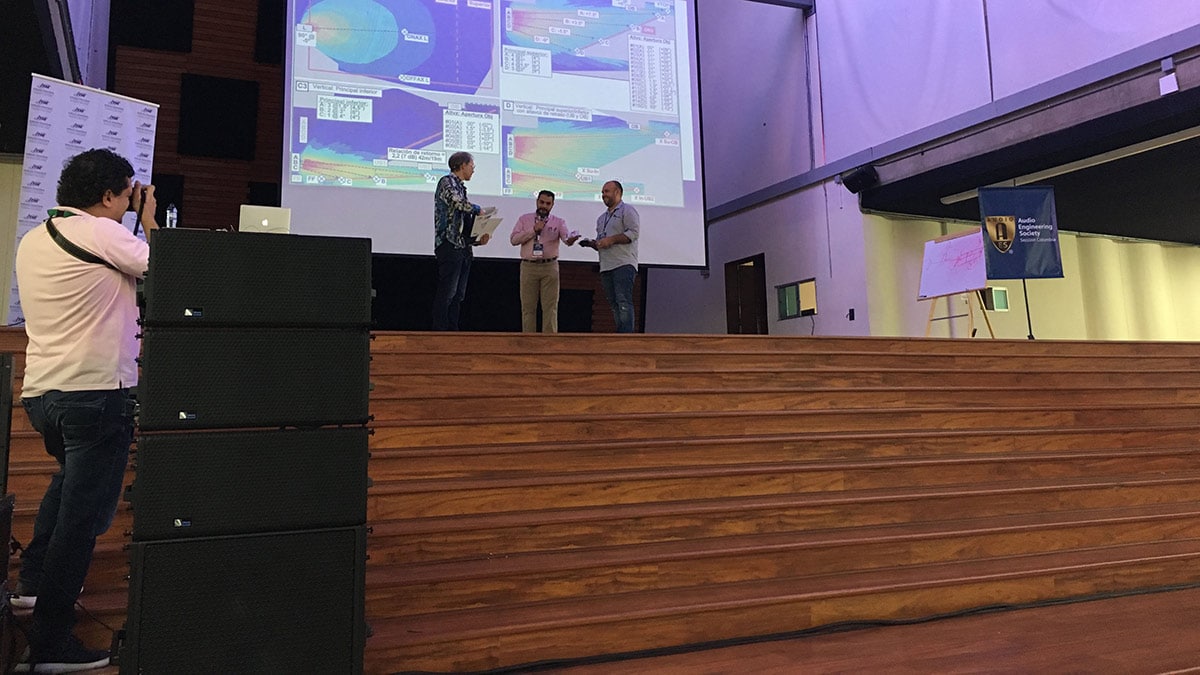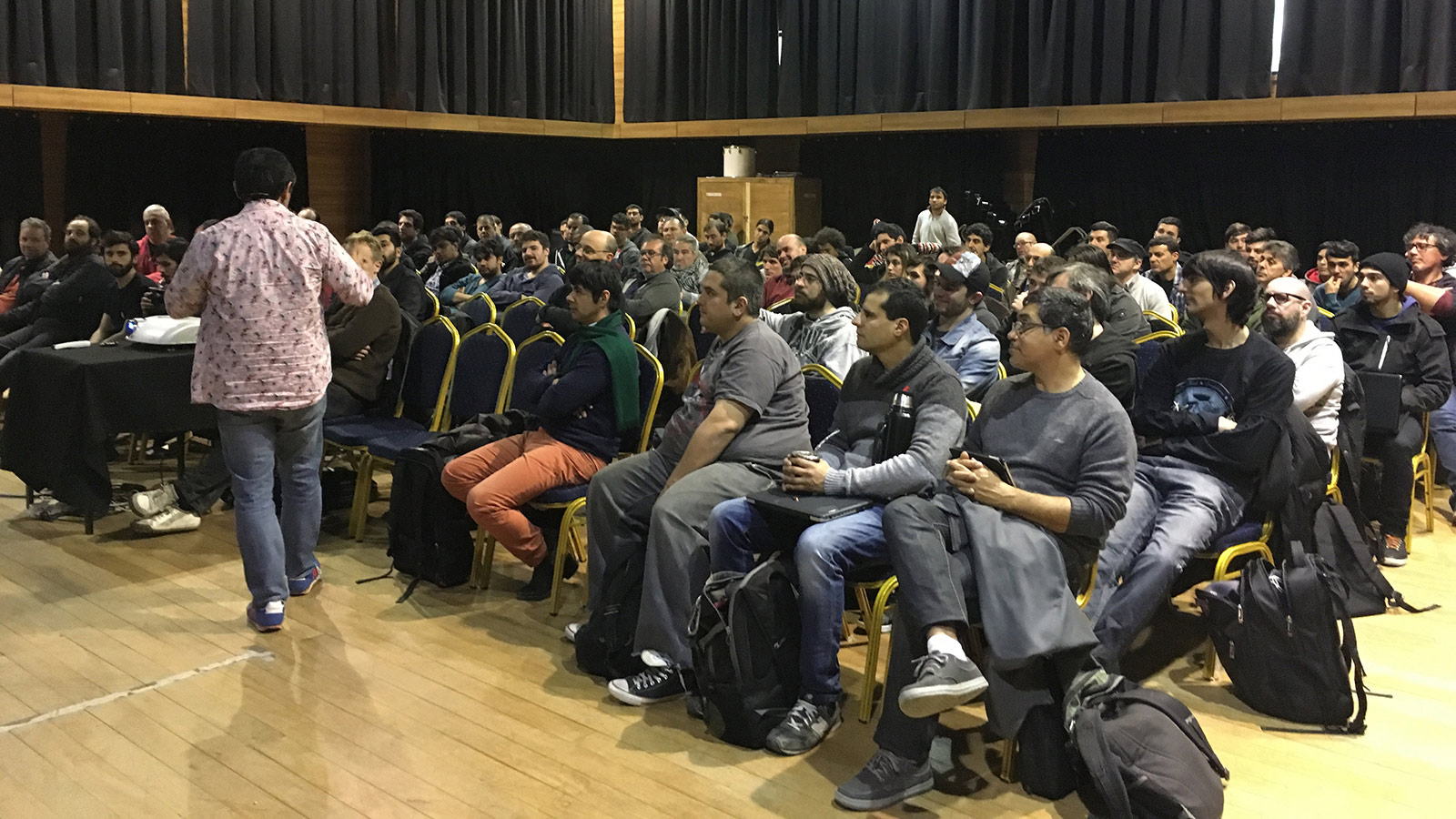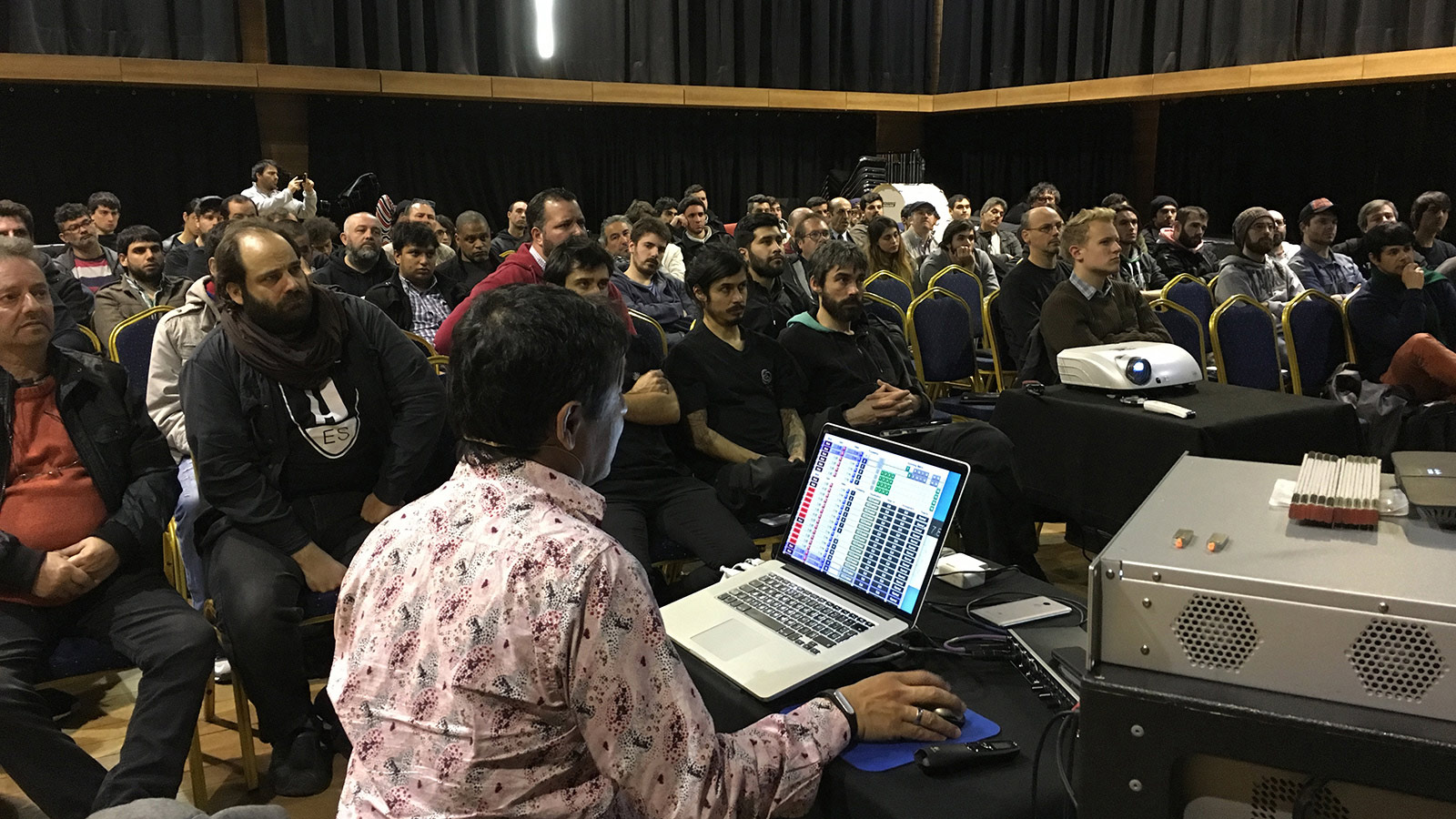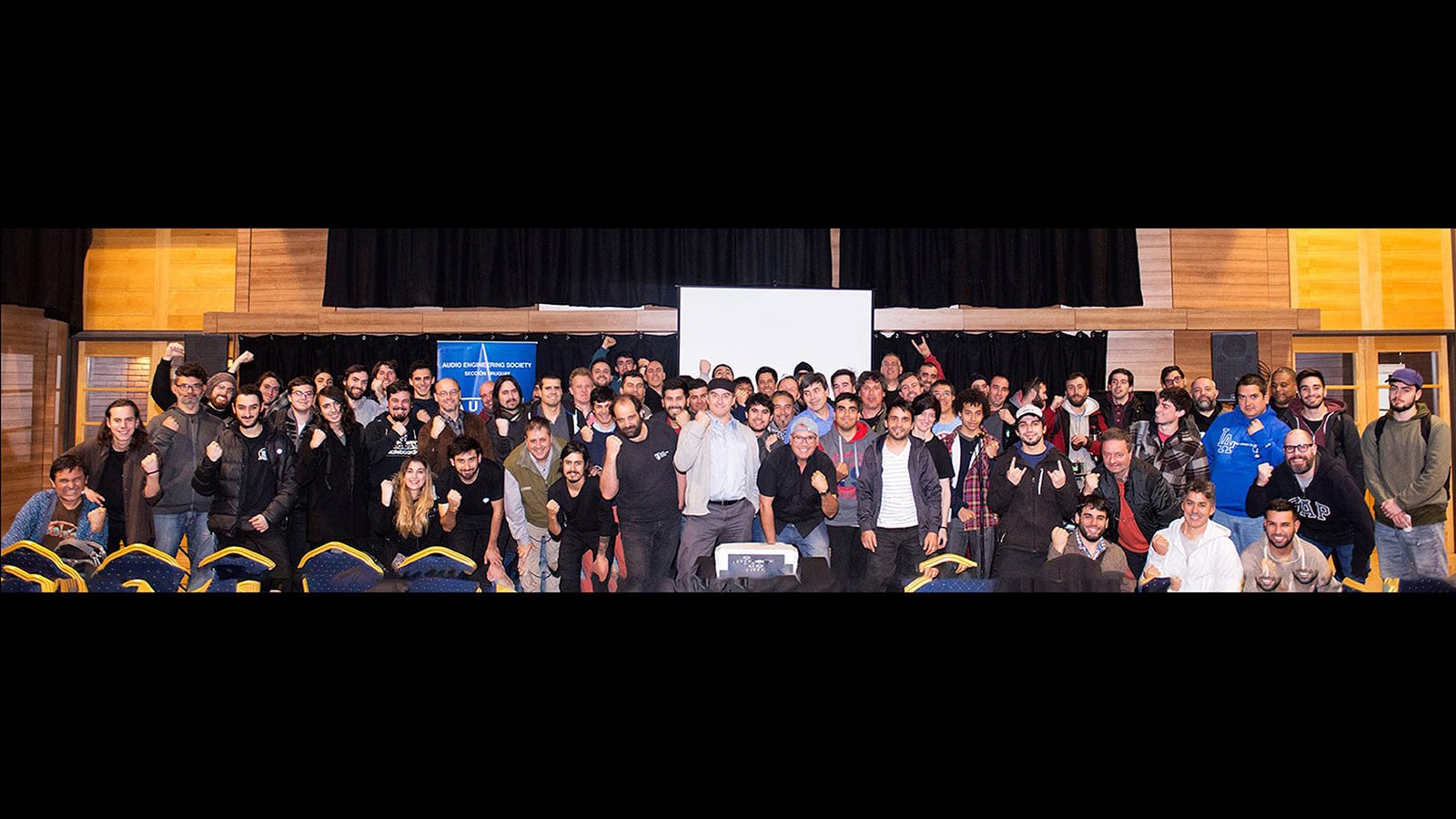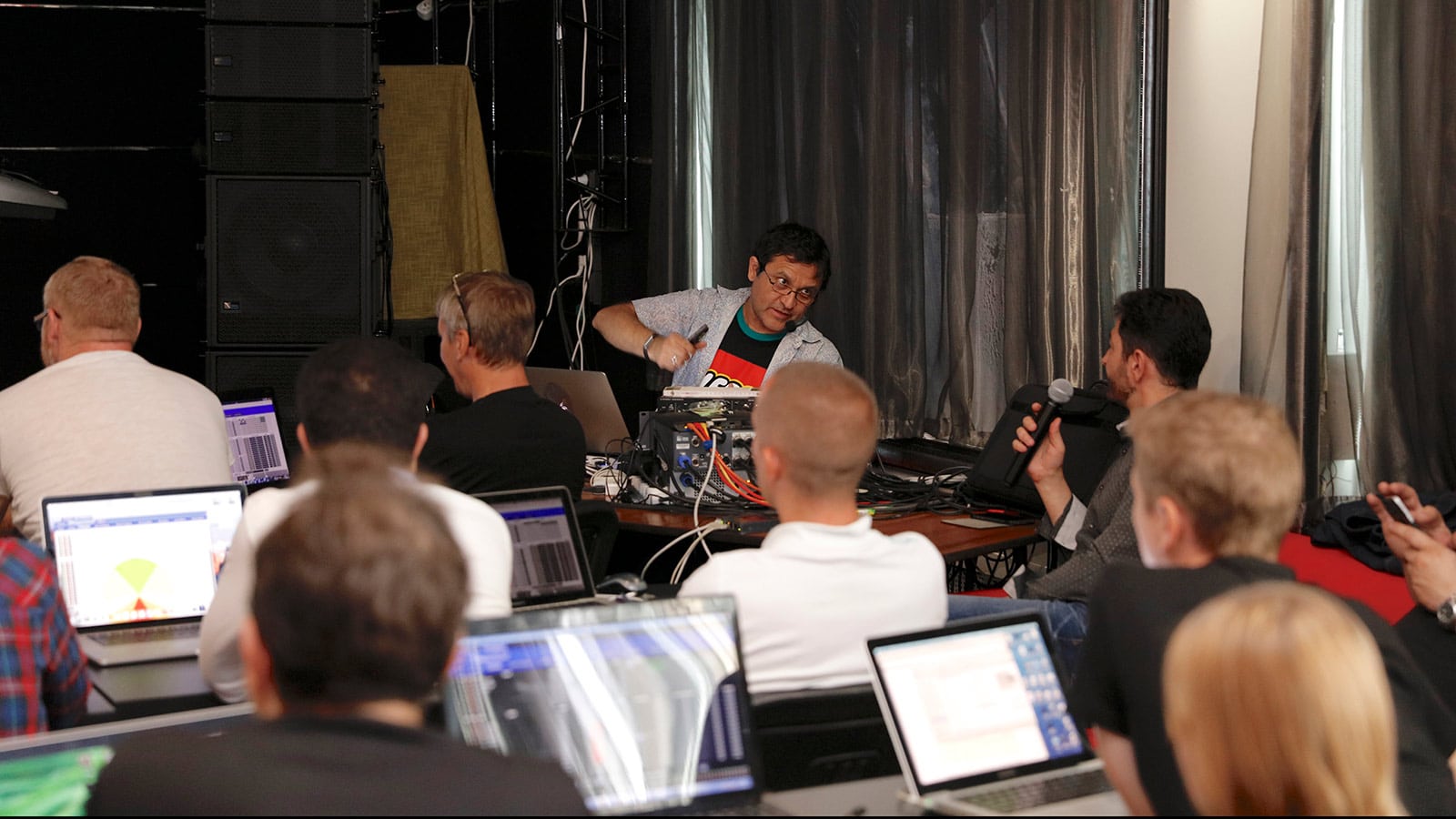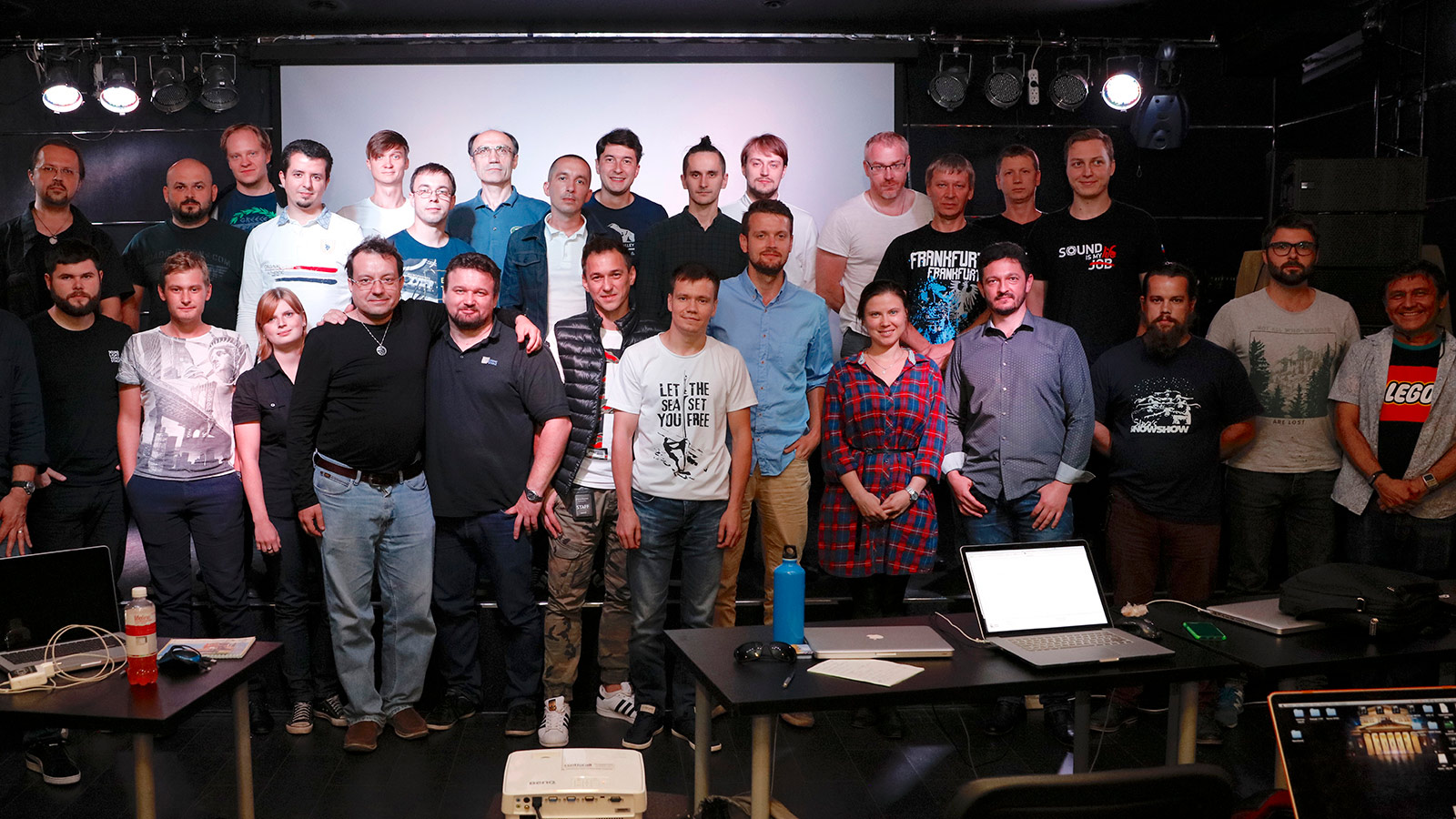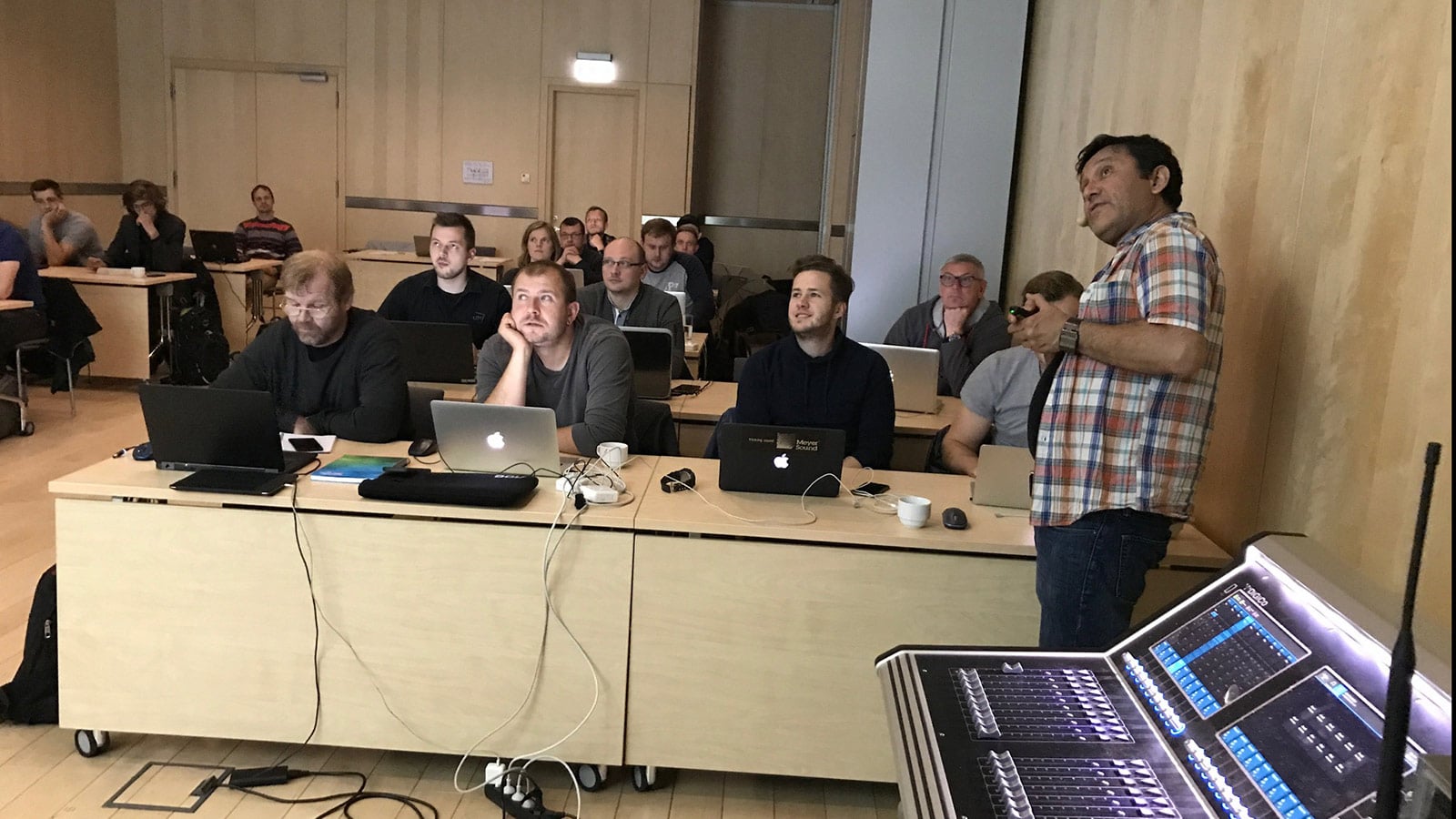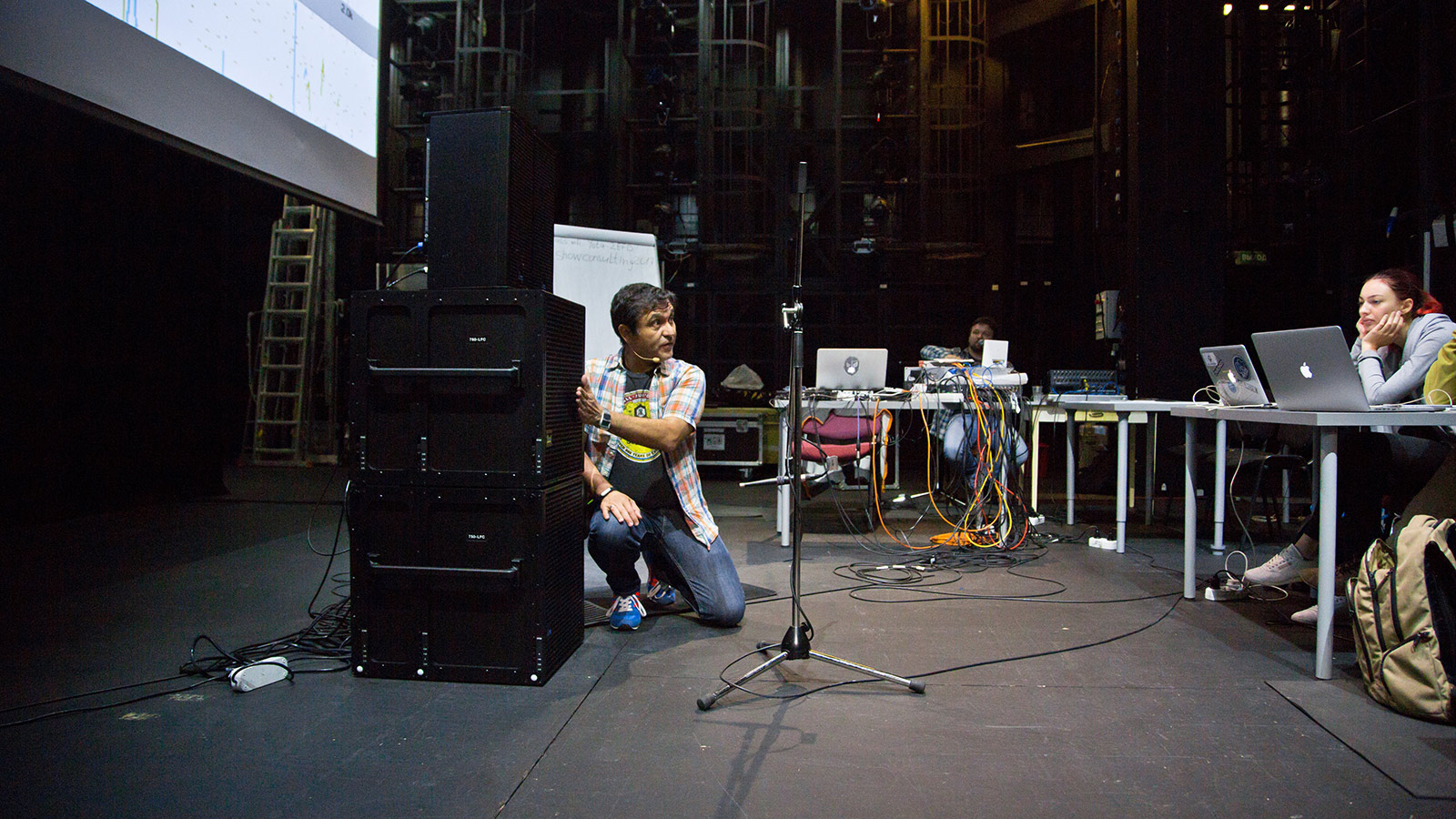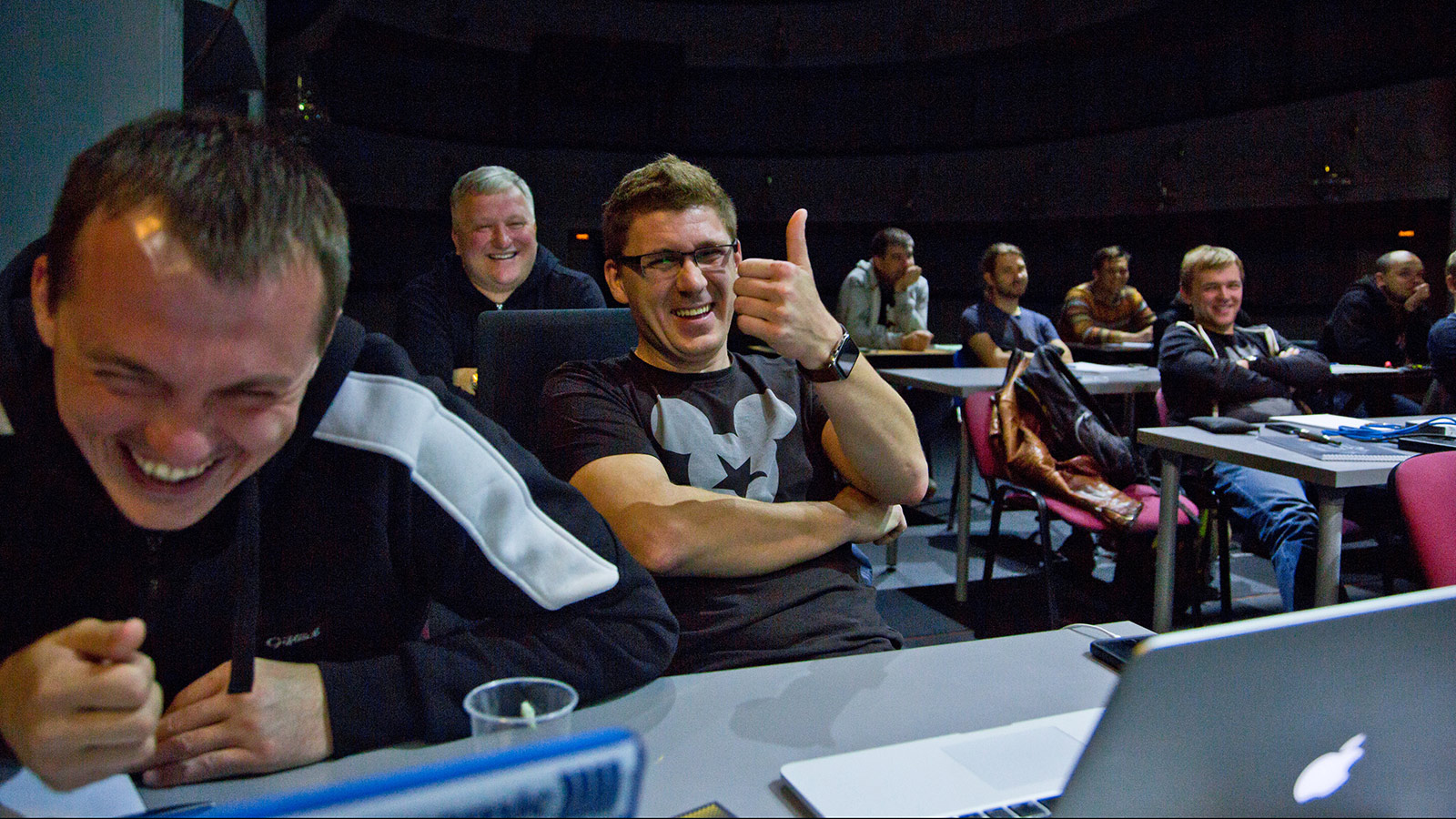
A Legacy of Learning
Meyer Sound enjoys a long history of educating the professional audio community, dating back to the early development of the original SIM Seminar. Comprehensive and science-based, our training program delivers content tailored to all disciplines and experience levels. Whether you are an aspiring student, a touring sound veteran, a skilled system integrator, or an audio consultant with multiple advanced degrees, we present tools and techniques to help you attain the best possible performance from your sound system.
Experts in the Field
Our instructors draw from a deep well of knowledge, built on decades of experience as system designers, technicians, and FOH engineers. Their extensive work in the field, across many industry sectors, affords them a unique ability to explain intricate concepts in comprehensible terms, all while maintaining a fun, engaging learning environment.
The Modular Edge
Meyer Sound approaches training with the same eye toward innovation that defines our products. Never static, our program continues to evolve with groundbreaking content and instructional techniques. In that spirit, we introduce our new modular course format, promising the utmost topical precision, scalability, and application. With this step forward, we strike an essential balance between theory and practice to situate concepts firmly in the technology, and by extension, the real world.
For additional program information, please contact our administration and scheduling team at education@meyersound.com.
Upcoming Trainings
Check Back Soon for Training Events
In-Person Training Course Descriptions
This entry level course introduces tools and techniques to help you attain the best possible performance from your Meyer Sound system. The training provides an overview of Meyer Sound’s precision toolkit and loudspeakers; an introduction to the company’s core principles behind loudspeaker system design; an understanding of audio fundamentals; and practical knowledge of Meyer Sound precision tools.
This course is open for users of all levels, especially those new to the Meyer Sound ecosystem. Upon completion, attendees will understand how to navigate through the Meyer Sound precision toolkit and apply practical applications in the field.
| Course Outline |
| History of Meyer Sound |
| Overview of Meyer Sound Tools |
| Introduction to Meyer Sound Loudspeakers |
| Meyer Sound Core Principles |
| Basic Audio Fundamentals |
| Intro to Compass + GALAXY |
| Product Integration |
| Intro to Nebra + Milan AVB |
| Intro to MAPP 3D |
This course explores the relationship between the predictive perspective of the MAPP 3D Sound System Design Tool and actual sound system performance as measured with FFT‑based transfer‑function analyzers. The instructor will generate and compare data using both tools to help users better understand the correlation between the two. Upon completion of the course, attendees will possess a clearer idea of how sound systems behave in both modelled and real space, and with it, a more informed approach to accurately designing and optimizing systems using Meyer Sound solutions.
This training is eligible for 18 AVIXA CTS, CTS-D, CTS-I RU
| Course Modules |
| Meyer Sound History |
| Product Overview |
| Designing with MAPP 3D |
| System Design: Line Array Trim, Aim & Splay |
| System Design: Main Systems |
| System Design: Fill Systems |
| System Design: Delay Systems |
| System Design: Relay Systems |
| System Design: Low Frequency Control Theory |
| System Design: Low Frequency Control Recipes |
| GALAXY & Compass Applications |
| Measurement Analyzers |
| Acoustics 101 |
| Acoustics 202 |
| System Verification: With FFT |
| Sub Alignment: With FFT |
| System Optimization: EQ, Delay, Level, Aim, Splay |
| System Optimization: Low-Mid Beam Control |
| Subjective System Voicing |
This training provides the essentials that today’s users need for enhanced deployment of Meyer Sound portable live-sound systems, regardless of system size or application, including a basic understanding of networked audio.
Attendees acquire a working knowledge of the entire process, from initial system design to final verification, and everything in between. All topics are taught and demonstrated in practice — complete with loudspeakers as well as rigging hardware — with emphasis on Meyer Sound’s “precision toolset”. A suite of tools that support and streamline the entire workflow from design to deployment, verification, calibration, and system-health monitoring. Including the MAPP 3D System Design Tool, Galileo GALAXY Network Platform, Compass Control Software, Compass Go, Low-Mid Beam Control, RMServer, and Nebra Connectivity & Monitoring Tool, as well as Milan AVB networking, and FFT‑based transfer‑function analysis.
Though this course focuses primarily on live sound, the content is suitable for anyone involved in deploying sound systems, either portable or installed. Whether you are an aspiring student, or a seasoned professional with decades of experience, equip yourself with the tools and techniques to take your ideal sound system from concept to reality.
This training is eligible for 13 AVIXA CTS, CTS-D, CTS-I RU.
| Course Modules |
| Meyer Sound History |
| Product Overview |
| Fundamentals |
| Specifications, SPL, Coverage Angle, Harmonic Distortion, Acoustic Power |
| Transmission Signals, Impedance, Splits, Dynamic Range |
| MAPP 3D Usage |
| System Design: Line Array Trim, Aim & Splay |
| System Design: Main Systems |
| System Design: Fill Systems |
| System Design: Delay Systems |
| System Design: Relay Systems |
| System Design: Sub Array Theory |
| System Design: Sub Array Recipes |
| Stage Monitors |
| AC Power and Grounding |
| Wiring Practices |
| Power Distribution: MDM Series |
| Channeled Delivery: LCR, LR+Sub, Matrix |
| GALAXY, Starting Points, Compass, Compass GO |
| RMServer |
| Milan AVB + Nebra Software |
| Rigging: Below the Hook, Subs F/R: Theoretical |
| Rigging: Below the Hook, Subs F/R: Practical |
| Measurement Analyzers |
| System Verification: Without FFT |
| System Verification: With FFT |
| Quick Sub Alignment: Without FFT |
| Quick Sub Alignment: With FFT |
| System Optimization: EQ, Delay, Level, Aim, Splay |
| Subjective System Voicing |
Fusing classroom theory with practical exercises, this one-day course addresses a range of considerations when working with the Meyer Sound LFC subwoofer product line. Topics include verification procedures, cardioid and array configurations, effective cancellation techniques, main-to-LF scaling and alignment, and approaches to combining different subwoofer configurations within a single system.
This course is offered in select instances, as a supplement to Portable System Deployment and System Design & Optimization. Attendees should complete either course prior to taking Low Frequency Control, the content of which is intended for experienced audio technicians.
This training is eligible for 6.5 AVIXA CTS, CTS-D, CTS-I RU
| Course Modules |
| Meyer Sound History |
| Product Overview |
| Subwoofer Fundamentals |
| Verification |
| Cardioid Configurations: In-Line Gradient |
| Cardioid Configurations: In-Line End-Fire |
| Cardioid Configurations: Inverted Stack Gradient |
| Auto-Efficiency |
| Mind the Gap |
| Symmetrical Arrays vs Asymmetrical Arrays |
| Horizontal Arrays |
| Meyer Sound LFC Settings |
| VLFC – Below the Typical Subwoofer Frequency Range |
| Main-to-LF Configurations |
| Power Scaling: Main-to-LF Ratios |
| Main-to-LF Alignment |
| Subwoofer Combinations |
| Delay Subwoofers |
This interactive workshop develops understanding and knowledge in spatial audio using Spacemap Go, Meyer Sound’s spatial sound design and mixing tool. It includes guiding principles in spatial audio, Spacemap Go operations and workflow, and spatial sound design and mixing.
By the end of the training, participants will understand the guiding principles of spatial audio and system design, how to install a spatial audio system, and how to apply workflow for installing, connecting, designing, and mixing using Spacemap Go. Participants will also learn how to build Spacemaps and trajectories and trigger them with external control using OSC (Open Sound Control) and plug-ins, and they will explore various approaches in mixing spatial audio in a live production environment and installations.
This course is for people who want an introduction to spatial audio, have interest in using Meyer Sound’s Spacemap Go tool in live productions or events, and need to know how to design, use, and maintain these systems.
This workshop is eligible for 3.5 AVIXA CTS, CTS-D, CTS-I RU.
| Workshop Outline |
| Historical Context of Spatial Audio & Spacemap Go |
| Perception of Sound |
| Channel vs Object-based Mixing |
| Spacemap Go: Getting Connected & Navigation |
| Building Spacemaps |
| Trajectories & Automation |
| Saving Snapshots and Projects |
| Guiding Principles in Spatial Audio System Design |
| Workflow |
| 3rd Party Integration |
| Building Complex Spacemaps |
| Overview of Mixing Techniques for Spatial Audio |

